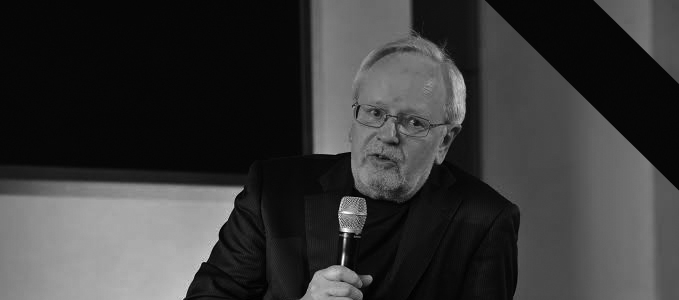
Prof. Dr. Holger Böning deceased
21. May 2024
Prof. Dr. phil. habil. Holger Böning
*December 16, 1949 – †May 5, 2024
The ZeMKI mourns the loss of its member, the long-standing spokesperson of the Institute of German Press Research in Faculty 9 at the University of Bremen.
In the more than thirty years of his work at this institute, Holger Böning decisively advanced research, especially basic research, on the historical German and European press. It was above all through his work with sources in all their variety and diversity, which he made a matter of principle, that he was able to present the German press, especially in the 17th and 18th centuries, in its national and international historical context in a truly reliable way for the first time. His attention was focused on all genres of periodicals in the Enlightenment era, be it the first handwritten newspapers, which were printed from 1605 onwards, the subsequent journals, the calendars that had been popular since Gutenberg’s time, the literary and thematically oriented almanacs or the annual reports of institutions and societies; even local weekly collections of sermons were worthy of his attention, as he recognized and conveyed in numerous studies that all of this was part of a media system that was interconnected and interrelated in many ways, guided by different economic, social and ideological interests depending on the time, and which was constantly evolving, also in its appeal to readers.
The DFG funded many of Holger Böning’s basic bibliographical and biographical research projects. These include the topographically organized series “Deutsche Presse bis 1815” (German Press up to 1815), which he founded, research into the German calendar series and calendar makers of the 16th to 19th centuries, and the first-ever indexing of the German measurement relations of the 16th to 18th centuries, which had previously been largely ignored by researchers.
The impact of Holger Böning’s work on the national and international specialist community and, in some cases, on a non-academic audience was immense. The many conferences he (co-)organized, the press history exhibitions he (co-)developed, the “Jahrbuch für Kommunikationsgeschichte”, which he (co-)founded and edited in 1999, and not least the joint projects with European, especially Eastern European colleagues, all contributed to this.
As a passionate researcher with a wide range of political and cultural interests, Holger Böning has also published monographs on topics on the fringes of media history. For example, he wrote the first biography of the Hamburg composer, cantor and music publicist Johann Mattheson (1681-1764); his extensive study on political song in the FRG and the GDR is considered a reference work, and his biography of the social physician, newspaper founder and Reichstag deputy Julius Moses, who was a health expert on the SPD board during the Weimar Republic and was murdered in Theresienstadt concentration camp in 1942, is considered a fundamental contribution to German-Jewish journalism and history between 1880 and 1944. After beginning his retirement in 2016, Holger Böning continued his academic work in constant exchange with colleagues in Germany and abroad, as well as visibly expanding the program of the renowned publishing house “edition lumière”, which he founded in 2000, with its focus on press history and Enlightenment research. What had worried and preoccupied him in the time before his retirement was the development of the institute, which he had brought to high national and international esteem, the thinning out of its staff and thus a noticeable reduction in its research activities. For years he had tried, ultimately in vain, to counteract this.
In his personal dealings, the unexpectedly deceased always struck a calm, understanding tone. He was an interested listener and gave valuable advice, unselfishly and always reliably. Younger members of staff and student assistants were often encouraged by him and under his guidance were able to discover their interest in the fascinating world of press history, develop their methods and finally express themselves in a stylistically confident manner. Holger Böning was a friend to many colleagues all over the world.
The ZeMKI has lost a colleague who cannot be replaced.

